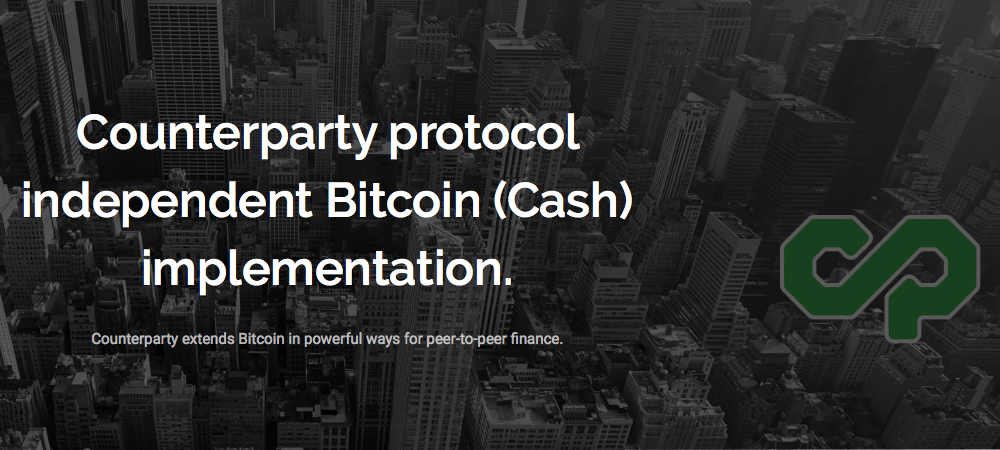Latest news about Bitcoin and all cryptocurrencies. Your daily crypto news habit.

Over the past few weeks, the bitcoin cash (BCH) community has been discussing the use of ‘op-codes’ with the BCH chain. The technology could allow the creation of different types of metadata implementations like colored coins and representative tokens, alongside the ability to perform smart contracts, but in a more simplified manner as opposed to ethereum’s solidity programming language. The subject of re-activating certain op-codes and scripting abilities has invoked some excitement from BCH proponents and this May after the bitcoin cash hard fork the community will see some new op-code features.
Also read: Cryptocurrency Is the Main Income for 12% of Russian Crypto Users
Bringing Op-codes, Colored Coins, and Smart Contract Functionality to the Bitcoin Cash Network
 Bitcoin cash is forking on Tuesday, May 15 at approximately 12:00:00 UTC, 2018 and will feature a 32 MB block size upgrade, and “several bitcoin script operation codes (op-codes) being added or reactivated.” Op-codes are basically an abbreviation for ‘operation codes’ which is essentially a portion of machine language instructions that enable the performance of a specific task. The Bitcoin Cash codebase uses a scripting system in transactions using a Forth-like process, and the protocol has the ability to create colored coins, and simplified smart contracts that can perform automated functions.
Bitcoin cash is forking on Tuesday, May 15 at approximately 12:00:00 UTC, 2018 and will feature a 32 MB block size upgrade, and “several bitcoin script operation codes (op-codes) being added or reactivated.” Op-codes are basically an abbreviation for ‘operation codes’ which is essentially a portion of machine language instructions that enable the performance of a specific task. The Bitcoin Cash codebase uses a scripting system in transactions using a Forth-like process, and the protocol has the ability to create colored coins, and simplified smart contracts that can perform automated functions.
The resurrection of op-code deployment has been discussed for quite some time, but was recently brought back up when Bitcoin Unlimited’s Andrew Stone launched the ‘Op-Group’ meetings on Github. Bitcoin cash developer participants at the meeting included Amaury Sechét of Bitcoin ABC, Dan Connolly of bitcoin.j.cash, Steve Shadders of Nchain, and other programmers.
“In order to support non-trivial cash use cases for the bitcoin cash blockchain, a number of ecosystem participants would like to see some of the original bitcoin op-codes re-enabled for use in smart contracts,” explains the meeting summary back in February.
However, the original issues associated with these opcodes remain valid — Namely, undefined behavior, and potential for DDoS attacks against the network.
The Initial Opposition to Op-Group
According to the Op-Group meeting, the developers will re-instate nine op-codes that were once available in older bitcoin implementations. Some of the op-code phrases were removed because there was a fear of bugs. For instance, in an early version of the bitcoin codebase, the op-code ‘OP_LSHIFT’ allegedly could crash any bitcoin node if exploited. The reinstating of op-codes came with some controversy within the bitcoin cash community. When Bitcoin Unlimited (BU) proponents brought up the subject, there was an argument about using op-codes or the recently developed Counterparty Cash implementation. During the heated battle, BU supporters showed some angst against ABC developers at the time.
Amaury Séchet argued during the initial discussions, “If Counterparty breaks, only Counterparty breaks. If OP_GROUP breaks, Bitcoin Cash breaks.” The Counterparty protocol uses a separate network to complete the tokenization process rather than the BCH chain.
 Counterparty Cash will also be able to create tokenized assets using BCH but will utilize the XCPC network. Op-Group development will be different and will use the BCH chain natively.
Counterparty Cash will also be able to create tokenized assets using BCH but will utilize the XCPC network. Op-Group development will be different and will use the BCH chain natively.
The Resolution Towards Scripting Abilities and a £5 Million Pound Bounty
However, with all the infighting aside there seemed to be some resolution as the topic of colored coins and op-codes was a central theme of discussion during the Satoshi’s Vision Conference in Tokyo. Moreover, the Calvin Ayre owned firm, Coingeek, is willing to pay a programmer or development team £5 million if they can bring a tokenization functionality to the BCH chain.
The developers must create a generic system or suite of interactive systems that produce secure blockchain-based tokens, wallet compatibility, and an audit solution so the public can check the validity of tokens created. Further developers will be allowed to utilize Nchain’s intellectual property assets. The firm just launched its completed 1.0 version of its new ‘Nakasendo’ software development kit (SDK) for BCH developers. Coingeek states that the tokenization contest doesn’t necessarily require smart contract capability, but it can offer that specific functionality as well.
“The solution must be provided with supporting design documentation, as well as working code that shall include source code — The solution may (but is not required to) involve execution of a smart contract solution on the blockchain,” explains the company Coingeek.
Bitcoin cash proponents are excited to see BCH take on some cool features like creating colored coins or tokens that can represent any virtual or physical asset like stocks, bonds, precious metals, loyalty points, and more. Smart contracts could also bring the advancement of basic types of automated processes like leaving funds for someone to receive at a later date, or more complicated ideas like decentralized autonomous organizations (DAO).
What do you think about op-codes being re-instated and added to the bitcoin cash protocol? Let us know what you think about these subjects in the comments below.
Images via Shutterstock, BCH, Pixabay, and Counterparty Cash.
Do you agree with us that Bitcoin is the best invention since sliced bread? Thought so. That’s why we are building this online universe revolving around anything and everything Bitcoin. We have a store. And a forum. And a casino, a pool and real-time price statistics.
The post Op-Codes and Scripting Capabilities Coming to Bitcoin Cash appeared first on Bitcoin News.
Disclaimer
The views and opinions expressed in this article are solely those of the authors and do not reflect the views of Bitcoin Insider. Every investment and trading move involves risk - this is especially true for cryptocurrencies given their volatility. We strongly advise our readers to conduct their own research when making a decision.
